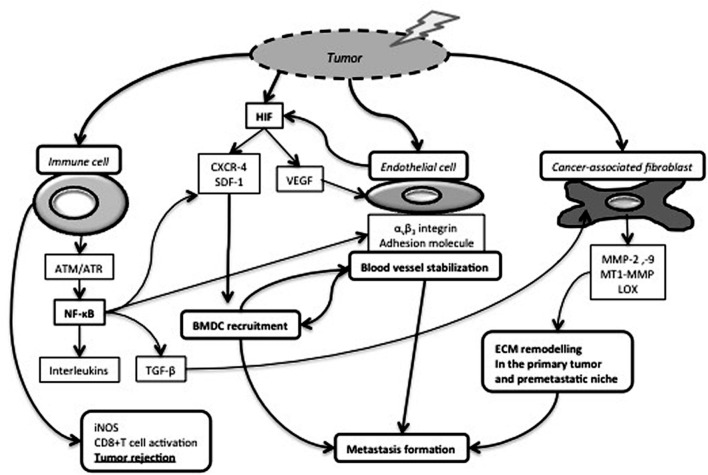FIGURE 2.
Impact of RT on cancer-associated immune cells, endothelial cells and fibroblasts. Tumor irradiation leads to the production and stabilization of HIF-1, which induces Vascular Endothelial Growth Factor (VEGF) production and subsequently endothelial cell proliferation and survival. Endothelial cells increase their membrane expression of αvβ3 integrins and adhesion molecules. Those modifications in cell adhesion molecule expression and HIF-1-dependent CXCR-4/SDF-1 release contribute to Bone Marrow Derived Cell (BMDC) recruitment favoring in turn blood vessel stabilization and metastasis formation. RT also activates cancer-associated fibroblasts (CAF) and induces the release of extracellular matrix) (ECM) remodeling enzymes facilitating cell invasion and metastasis formation. NF-κB pathway is activated in irradiated immune cells and regulates the release of numerous cytokines, including TGF-β, an epithelial-to-mesenchymal transition inducer and a CAF activator. On the other hand, induction of inducible Nitric Oxide Synthase (iNOS) expression by tumor-associated macrophages participates to cytotoxic T cell activation and tumor rejection.

